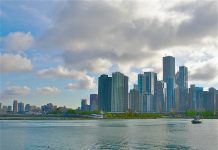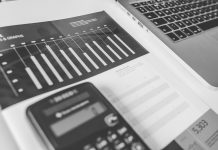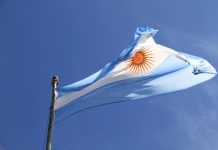 Svenska Spel’s revenue declined and new taxes slashed profits in what chief executive Patrik Hofbauer called “the most tumultuous year in the history of the group and the [Swedish] gaming industry.”
Svenska Spel’s revenue declined and new taxes slashed profits in what chief executive Patrik Hofbauer called “the most tumultuous year in the history of the group and the [Swedish] gaming industry.”The former monopoly operator’s net revenue for the year fell 2.4% to SEK8.58bn (£682.1m/€818.1m/$888.9m), which Hofbauer (pictured) said was largely down to the new 18% gross revenue tax introduced as a result of the re-regulation of the Swedish gaming market, which amounted to SEK1.62bn for the operator. Svenska Spel’s revenue for the year came on turnover of SEK19.50bn, down 7.2%.
The Tur division, which deals with lottery games, brought in the majority of net gaming revenue, at SEK4.74bn, down 1.0% year-on-year. Net revenue from Svenska Spel’s online Sport & Casino division rose 5.9% year-on-year to SEK2.12bn while net revenue from Casino Cosmopol and Vegas, Svenska Spel’s land-based casino and gaming machine division, fell 14.7% year-on-year. Other income declined 16.2% to SEK249m.
Online revenue for the year increased year-on-year by 11.1% to SEK3.02bn. However, this still remained behind the total revenue earned from lottery agents, which fell 9.4% to SEK 3.58bn.
While the SEK1.62bn in new gaming taxes weighed on Svenska Spel’s bottom line, the operator cut direct operating expenses, which fell 7.9% year-on-year to SEK1.20bn. As a result, the company’s net sales from gaming operations came to SEK6.01bn for the year, down 23.7%.
The business paid SEK1.17bn in personnel costs, up 2.4%, while other external costs grew to SEK2.06bn and SEK345m in depreciation and impairment costs, up 39.1%, was recorded.
This meant that Svenska Spel’s operating profit for the year came to SEK2.47bn, down 45.5%. Removing gambling taxes, the total figure would be 9.7% below 2018.
After a SEK21m net financial gain, Svenska Spel’s profit came to SEK2.49m. The operator received a further SEK228m through tax refunds, though, for an overall profit of SEK2.72bn. This total was 40.0% below 2018’s profit.
The year ended on a more positive note though, as Q4 revenue rose 3.6% to SEK2.48bn. Although turnover still declined year-on-year in Q4, the fall was only 4.6%, to SEK5.44bn.
All three major verticals performed better in Q4 of 2019 than they did in the prior three quarters. Net Tur revenue rose slightly to SEK 1.37bn, net revenue from the sport and casino division increased 15.4% to SEK661m, while Casino Cosmopol net revenue declined 9.8% to SEK 441m.
Svenska Spel paid SEK460m in tax, while direct operating costs fell 5.7% to SEK329m. This led to net sales from gaming operations falling 18.5% to SEK1.75bn.
The operator’s personnel costs came to SEK304m, up 1.3%. Other external costs rose 3.3% to SEK588m while deprecaition and impairment costs came to SEK98m, up 58.1%.
Svenska Spel’s operating profit for the quarter came to SEK774m, down 37.2%. If not for the addition of gambling taxes, its operating profit would have increased by 0.2% for the quarter.
The business made a net financial gain of SEK32m, and after paying SEK139m in taxes, net profit came to SEK667m, down 45.8%.
Hofbauer noted that in 2019, the operator had to stabilise itself and adjust to the newly re-regulated market, but now that the year is over, Svenska Spel has a chance to grow in 2020.
“The most important thing during the year has been to stabilize the business after the major transition to a new gaming market, which we have now done, meaning that we are well equipped for the future,” Hofbauer said. “We are entering the new year with an aggressive focus going forward, but with continued concern for our customers.”
Tight regulations hit many operators in Sweden in 2019 after the country opened its regulated gaming market. Gaming regulator Spelinspektionen issued a number of fines to operators throughout the year, prompting online gambling trade association Branschföreningen för Onlinespel (BOS) to request an urgent meeting with Spelinspektionen for greater clarity on regulations in July.
These regulations have affected the bottom lines of other operators also working primarily in the Swedish market, such as Kindred and Betsson.












